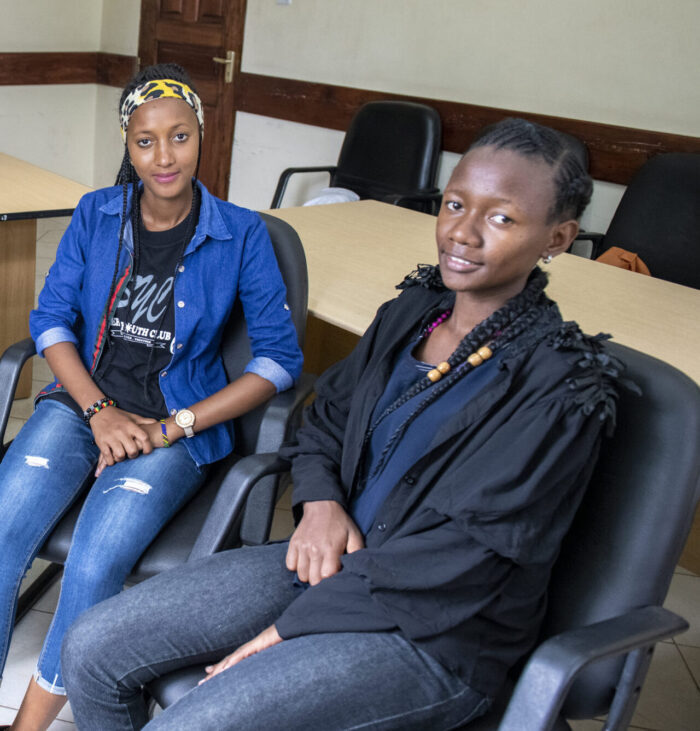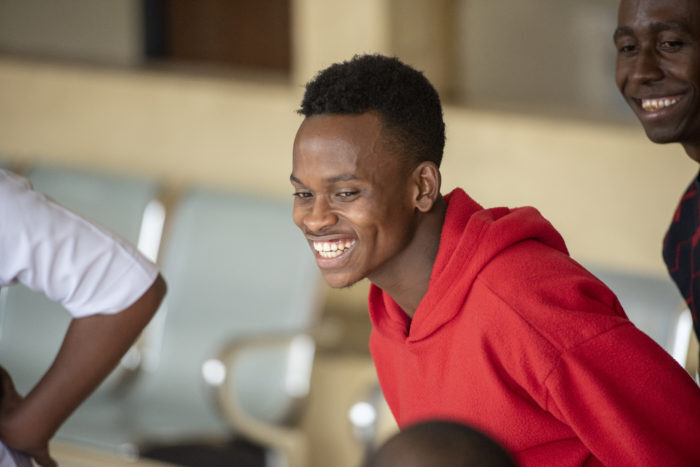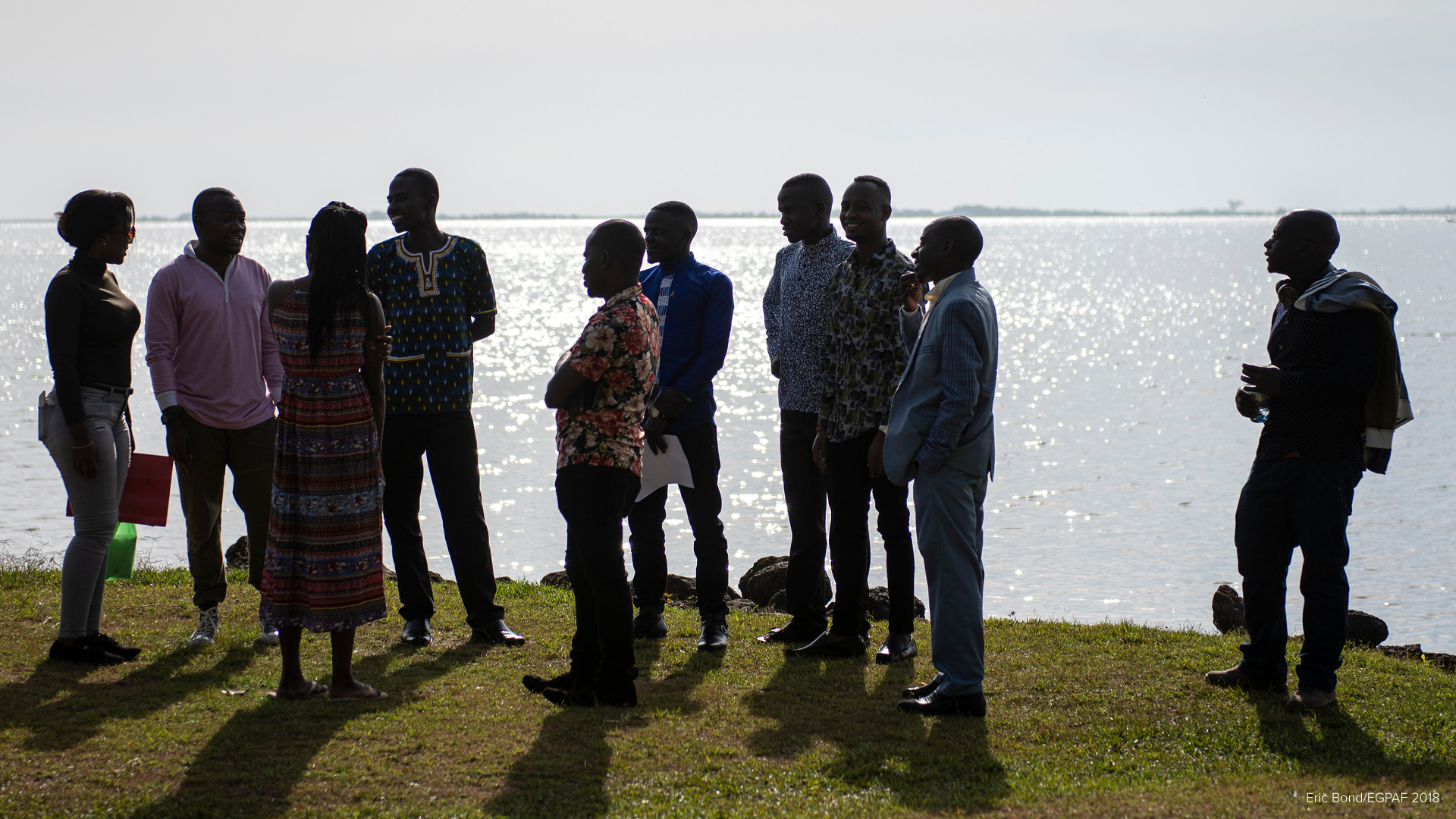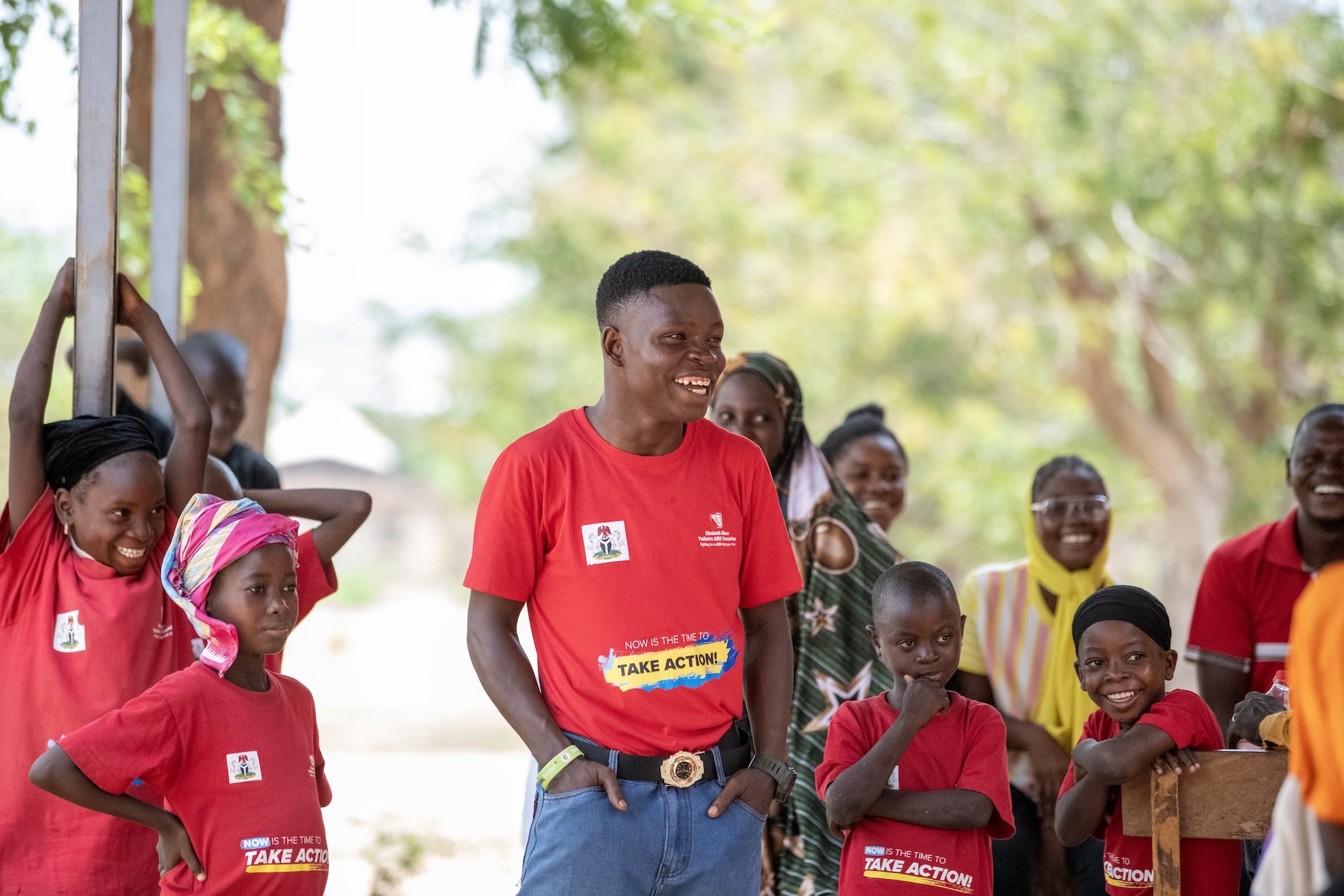Jane Emmanuel is a 21-year-old HIV activist living in Arusha, Tanzania. Before the COVID-19 pandemic, Jane used to spend time nearly every day at St. Elizabeth Hospital. Jane accesses her HIV treatment at St. Elizabeth and also helps lead a weekly peer support group—or teen club—for adolescents and young adults living with HIV. The club is supported by the Elizabeth Glaser Pediatric AIDS Foundation (EGPAF). Beyond health visits and the teen club, the hospital provides a safe space for Jane and other adolescents living with HIV.

Young people used to come to the clinic not only to get their medication, but also to receive psychosocial support and counseling, to listen to health talks by their nurses, and to play games and dance. Because of the stigma around HIV, many youth rely on their peers for advice and to talk out any issues that they may be experiencing. This can be almost as important as taking daily antiretroviral medication—and it helps keep young people on treatment.
At Jane’s teen club, the group also started a fledgling business selling T-shirts, memory cards, and other practical items. Proceeds from the business give club members a little cash to purchase food and cell minutes in this low-income community where jobs for young people are hard to come by.
With social distancing, however, the rhythm of the club has been disrupted. To decrease congestion, the hospital halted the face-to-face peer group sessions for several months, and the hospital is no longer a hangout spot. Without the other elements that made the clinic appealing, children and adolescents have became less inclined to come to pick up medication, much less make it their second home.
“The biggest challenge that they face is that they don’t attend to the clinic due to fear of COVID,” says Tumaini Mishana, 24, a peer educator at the teen club at Mount Meru Hospital. “Also, they cannot afford a mask or sanitizer.”
The biggest challenge that they face is that they don’t attend to the clinic due to fear of COVID. Also, they cannot afford a mask or sanitizer. Tumaini Mishana, peer educator
Despite the challenges, the youth and healthcare workers are adapting and doing their best to overcome obstacles. Phones are vital tools—almost no one has access to a laptop; many do not even have a radio. “We decided to make phone calls,” Jane explains. “We even created a WhatsApp group for those people who have cell phones that can access the Internet.”
“I, as a peer educator, support my community by giving them education about HIV and AIDS— also reminding them to protect themselves from COVID infection,” says Tumaini. Beyond conveying information and just checking in, the phone calls and the WhatsApp group provide platforms for psychosocial support.

But some club members do not have cell phones or access to the Internet. If they do have access to a phone, it may be controlled by a guardian, limiting their ability to stay in touch virtually. Being isolated at home blocks access to information and to others who know and understand their situation.
“When it comes to the issue of staying alone, maybe with the parents only, it’s becoming difficult,” says Jane. “He or she may have a problem that they cannot inform the parent about, but they might get afraid of texting me or even just making a phone call to me. Many youth are running out of options.”
We decided to make phone calls. We even created a WhatsApp group for those people who have cell phones that can access the Internet. Jane Emmanuel, Peer Educator
Despite her fears about setbacks in the lives of her peers living with HIV during the COVID pandemic, Jane remains undaunted. She has reached out to other peer leaders for support. She is making daily calls to every member that she can to check in and remind them to take their medication.
And she has taken on a research project, going into the community, wearing a mask and social distancing, to counsel young women living with HIV or at risk of acquiring HIV. With the economic downturn, sex work has expanded, along with other risky behavior. Jane is listening to girls and women and educating them about how they can remain safe. In this way she has found women living with HIV who have stopped taking their medication. She is influencing them to get back on treatment.
And Tumaini continues to energetically reach out to his peers to keep them on track as well. But he is also concerned that with so much attention on the COVID pandemic, global health professionals may forget about him and his peers.
They should not forget that HIV is still there. So let’s be careful to fight COVID without forgetting the movement to eradicate AIDS in the world. Tumaini Mishana
“At this time, young people living HIV would like to tell people that COVID has come, but they should not forget that HIV is still there. So let’s be careful to fight COVID without forgetting the movement to eradicate AIDS in the world.”
Ariel Teen Clubs in Tanzania are supported by EGPAF through the USAID Boresha Afya Project in partnership with EngenderHealth and the Ministry of Health, Community Development, Gender, Elderly and Children (MOHCDGEC).




